The most well-known facility is Tome Elementary School and Education Museum. Built in 1888 by architect Yamazoe Kisaburo and master carpenter Sato Asakichi, it is notable for its western-style U-shape. In each classroom you can learn about the history of Tome and even pose with life-sized mannequin students!
Meiji Historical Village
みやぎの明治村 / Meiji Village Museum of Miyagi
A glimpse of Tome during the Meiji era
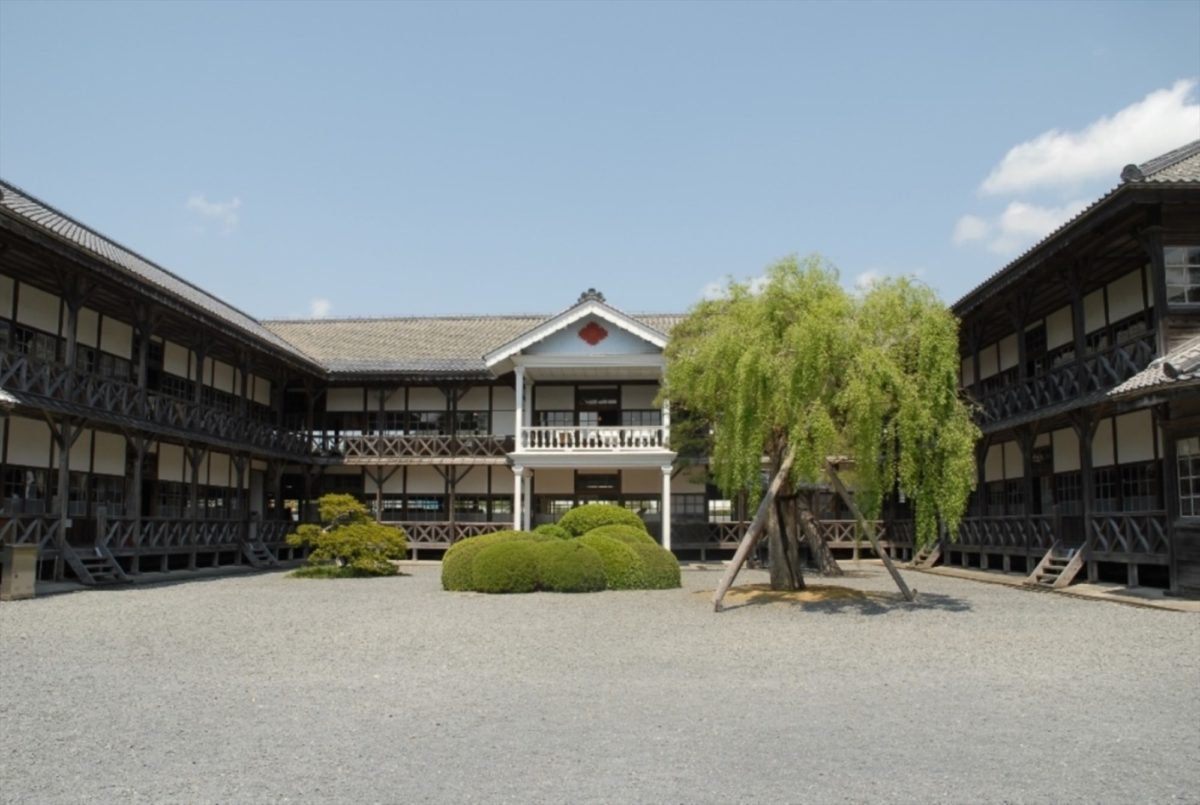
Photo by Miyagi Meiji Mura
-
The district of Toyoma is the historical heart of Tome City. This compact and walkable town center is surrounded by sprawling agricultural areas and scenic wetlands that thousands of migratory birds call home each winter. Toyoma invites visitors to explore its cluster of historic buildings known as Meiji Village, to give visitors a glimpse of what life was like during the Meiji Period. The Meiji Period was a fascinating and turbulent time as Japan left behind its cloistered samurai past and rapidly adopted ideas and technologies from Europe and the United States.
Start at Toyoma no Sato, Toyoma’s tourist information center. The ¥900 economy ticket grants access to all Meiji Village buildings. For an additional fee you can dress the part as well, with a choice of old-fashioned dresses or Japanese hakama for wear within the Education Museum.
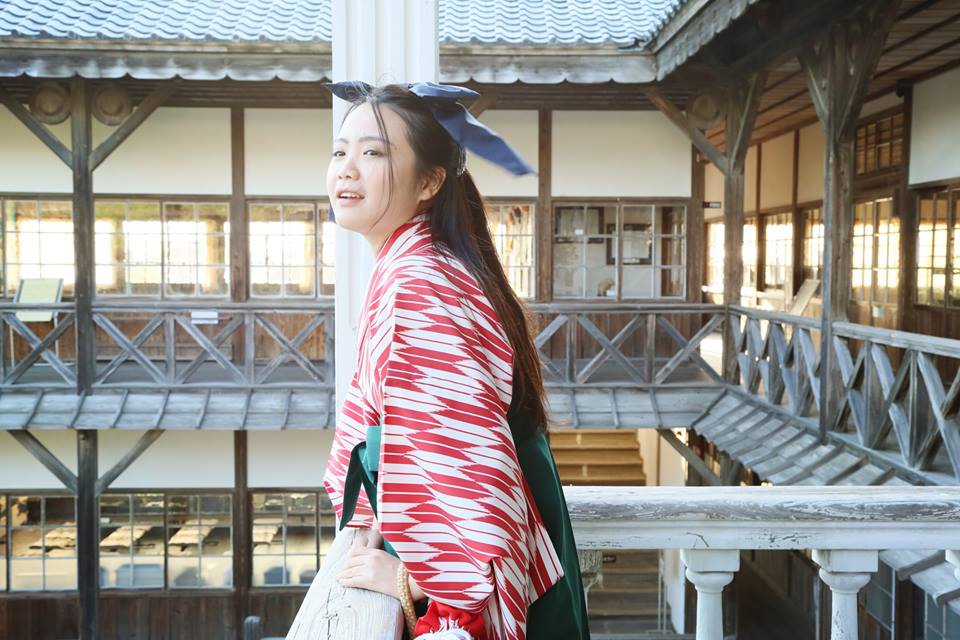
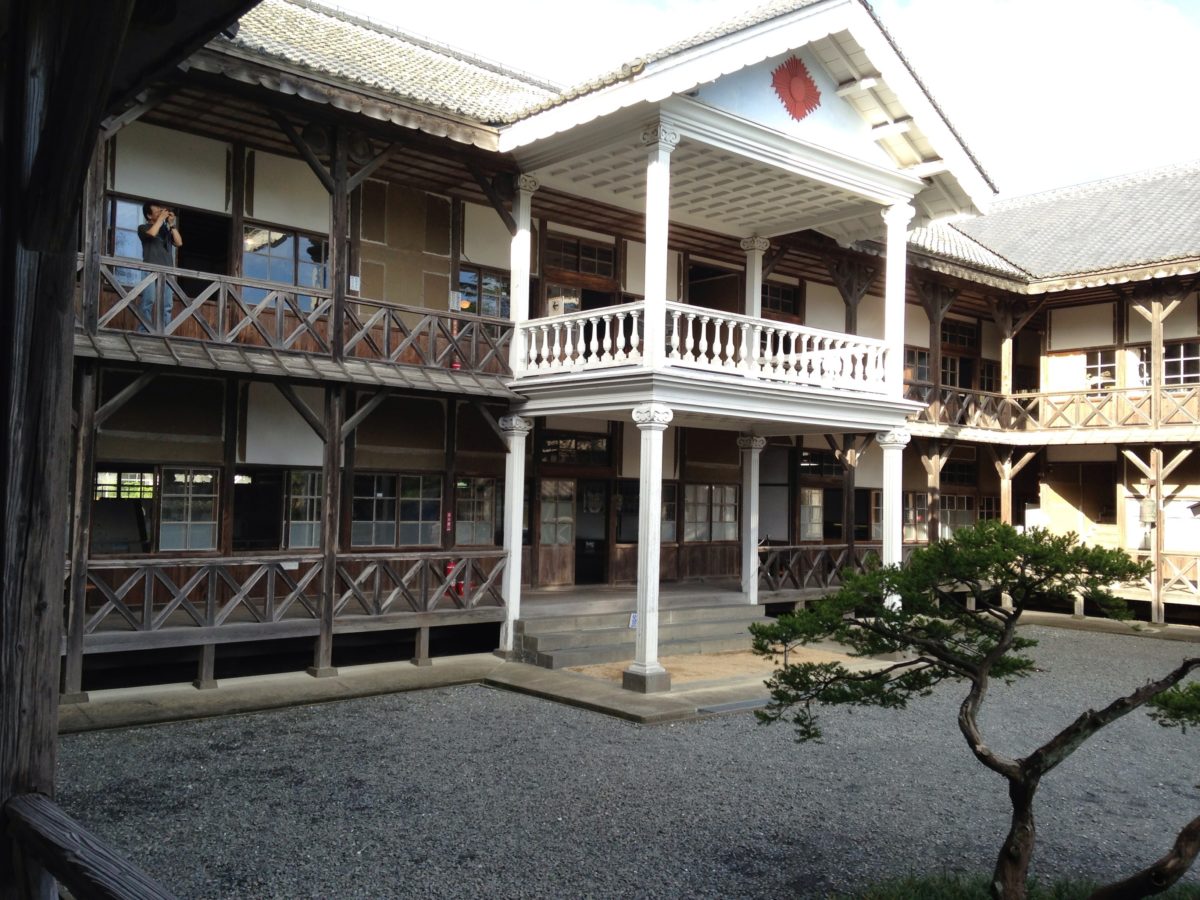
Close by is Shunrantei, a samurai residence with a traditional thatched roof. It was built more than two centuries ago, during the Edo period. Though the samurai who once lived here were highly ranked, one can see they lived a simple and frugal life by observing the slim pillars and narrow rooms of the residence. A museum here also displays artifacts related to the Date clan, the rulers of the region.
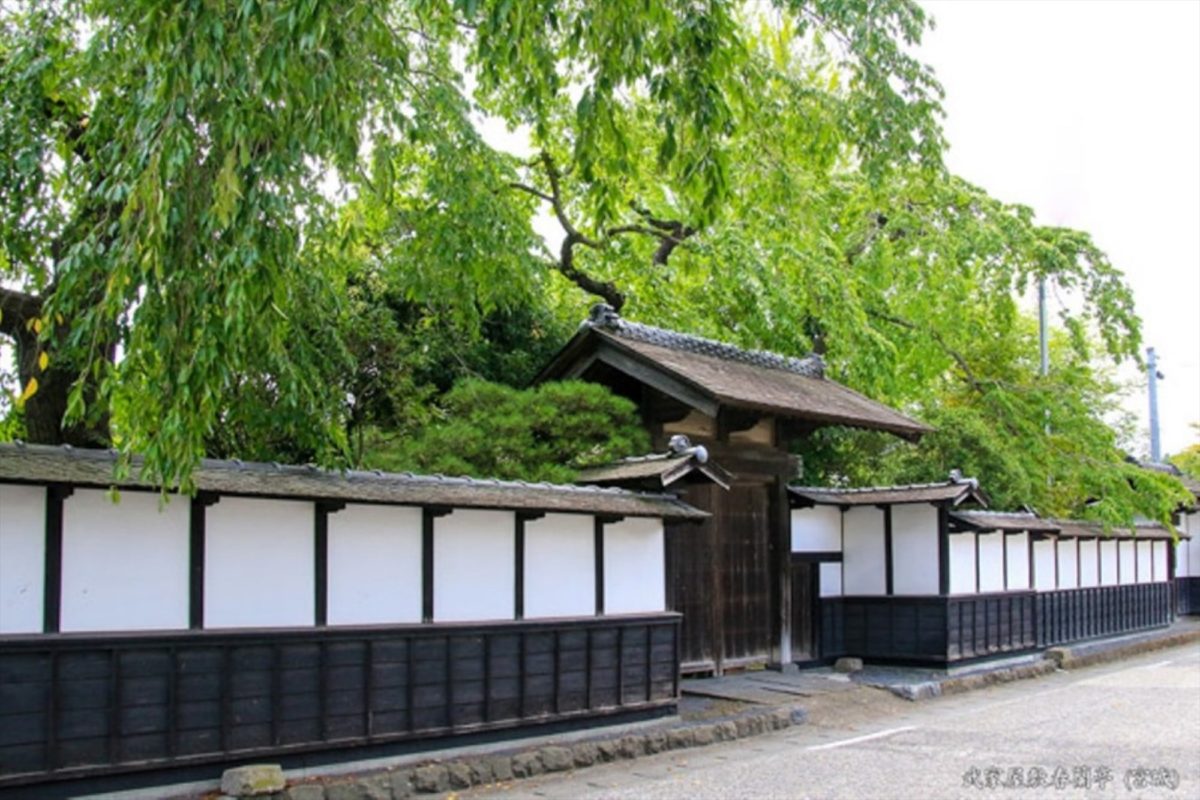
Next is the Mizusawa Prefectural Office Memorial, the government building of Toyoma during the time when Toyoma existed as a separate prefecture (1871–1875). Its large wooden gate and building reveal a blend of architectural styles. After the prefecture was abolished, the building was used as an elementary school and later a court.
The second-to-last stop on the walking tour is the Police Museum. This is the only police museum in Japan. It is housed in a former police station dating back to 1889. The building is intriguingly built in a Western-style but with a Japanese-style tile roof. It displays police artifacts, including real police vehicles.
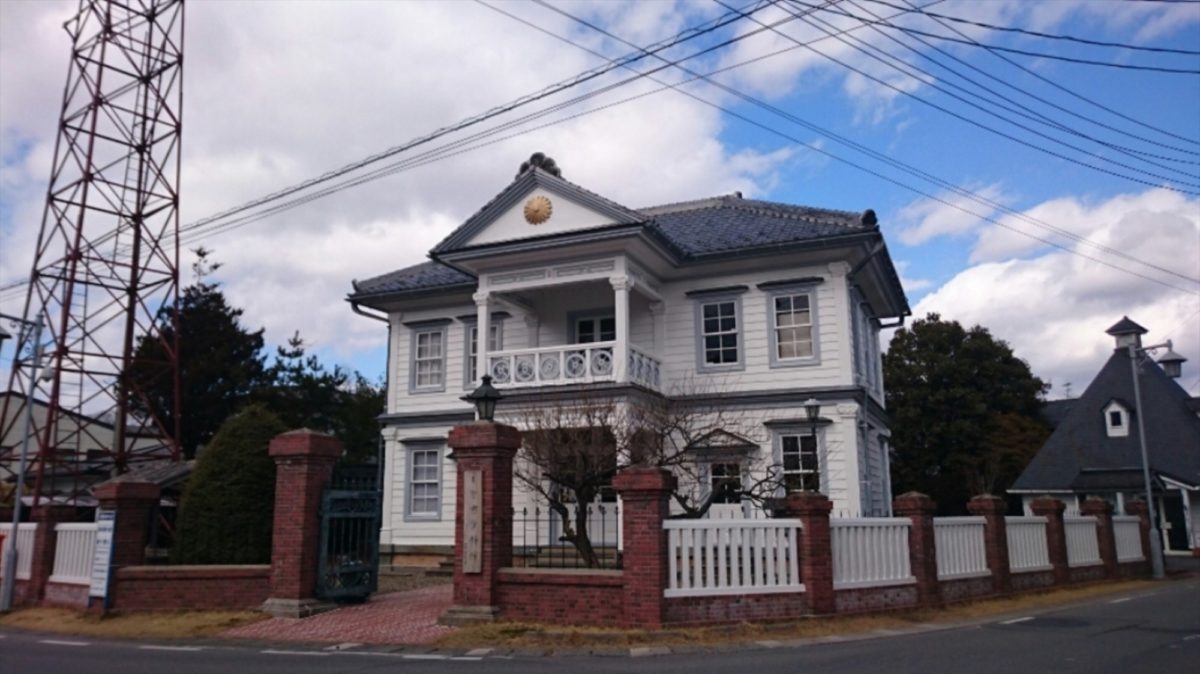
Rounding out the five buildings of the Meiji Village is Mori Butai Noh Theater. Toyoma Noh has a 400-year history, and this stage was built to return Noh to its roots as a performing art set in a forest. It was designed by Kengo Kuma, the architect behind the new stadiums being built for the 2020 Tokyo Olympics. Visitors can tour the building and view a collection of props used on the Noh stage. If you can, of course it’s best to go when you can actually catch a performance. The stage is illuminated at night for enchanting bonfire performances during the annual Toyoma Fall Festival on the third Saturday every September.
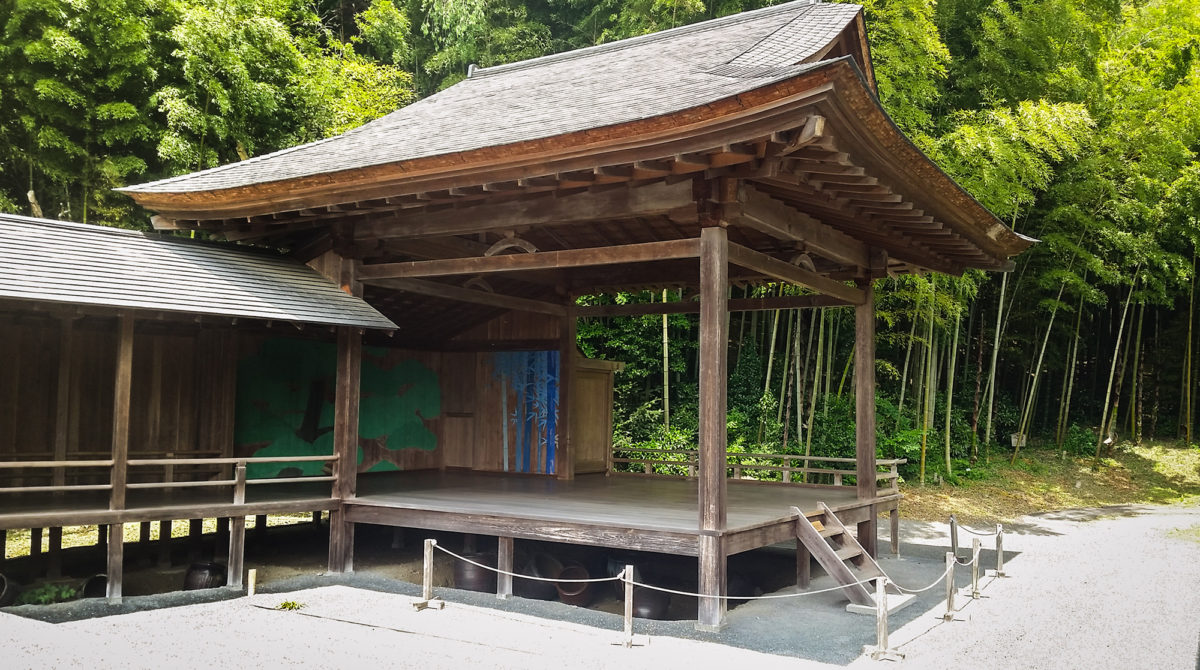
After savoring Tome’s history , how about sampling some of Tome’s signature foods?
Tsukayu (大衆食堂 つか勇) is the birthplace of Toyoma aburafu-don. Aburafu (deep-fried wheat gluten) is marinated in soy sauce and mirin, simmered with eggs and onion, then layered over rice. Another Tome specialty is hatto soup. It is warming and filling, with bits of chewy dough torn into ragged shapes that soak up the flavors of the broth.
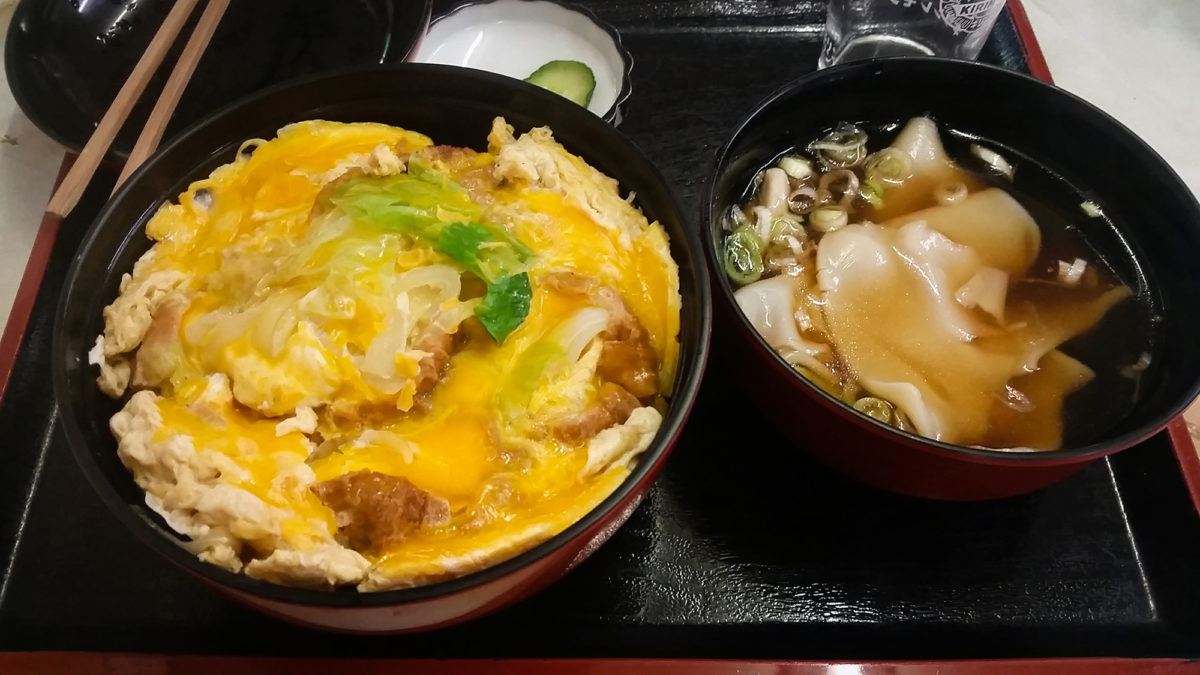
-
Last Update
October 17, 2019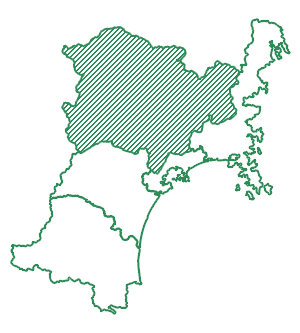
Area Northern Miyagi
Details
ADDRESS
Sakurakōji-2 Toyomamachi Teraike, Tome-shi, Miyagi-ken 987-0702
ACCESS BY PUBLIC TRANSIT
From Yanaizu Station: 15 minutes by bus. At Yanaizu Station (柳津駅), board a Tsuyama Line (津山線) bus bound for Tome (登米) or Sanuma (佐沼). Alight at the Tome Mikka-machi (登米三日町) bus stop. Timetable here. Scroll down to "Timetables for Each Line" (各路線の時刻表), and click "Tsuyama Line" (津山線).
From Sendai Station: 90 minutes by highway bus. At Sendai Station Bus Platform 32 (仙台駅 32番乗り場), board bus bound for Toyoma Sogo Shisho (とよま総合支所) or Tome Shiyakusho (登米市役所). Alight at the Toyoma Meiji Mura (とよま明治村) bus stop. Timetable here.
ADMISSION
Adults ¥900, high school students ¥700, children ¥500
CREDIT CARDS
Accepted at some facilities
LANGUAGES
Limited English
HANDICAP ACCESSIBLE
Yes, at some facilities
HOURS
9:00–16:30
CLOSED DAYS
The New Year's holiday period
PHONE
0220-52-5566
OFFICIAL URL
Visit Miyagi © 2018 All Rights Reserved.